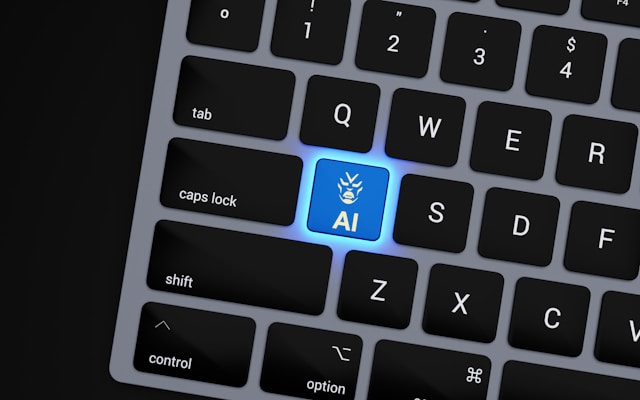The Future of Poker: The Impact of Technology and Artificial Intelligence on the Game
Poker has always changed with the times, shifting from smoky saloons to gleaming casino floors. Today, Betdaq Casino sits only a tap away on any phone, showing how fast the game keeps adapting. Technology now shapes every hand, from the cards seen on a screen to the stats whispering in a player’s ear. Artificial intelligence (AI), once science fiction, has become a regular at the virtual table, studying patterns faster than any human. Some fans cheer, others worry, but no one can deny that big shifts are coming. This article looks at how tech and AI already influence the cards, chips, and minds behind modern poker. It also explores what these tools might bring next, and why understanding them matters for hobby players and high rollers alike. For newcomers, the question is simple: will tech make the game richer or ruin the magic? With seats virtual and real alike, the future is ready to be dealt.
Digital Dealing: Smart Tables and RFID Cards
Smart tables now track every card and chip with tiny RFID tags embedded right inside the deck. When a dealer flips a card, sensors beneath the felt record the rank in real time and send the data to big screens overhead. Viewers at home instantly know each player’s hole cards, turning a private contest into a thrilling show. Casinos also use the feed for security. If a card disappears, the system flags it in seconds, cutting down on tricks and mistakes. Automatic shufflers, another tech upgrade, mix decks perfectly dozens of times an hour, reducing dead time and human error. For tournament organizers, the numbers are gold. They can review every hand, chart aggression levels, and build highlight clips faster than ever. Even casual home games see the benefits; affordable smart mats sync with apps that keep score, split pots, and post leaderboards on a TV. In short, hardware is making the classic green felt smarter, faster, and fairer.
AI Opponents: Friend, Coach, or Foe?
Artificial intelligence first made headlines in poker when a program called Libratus beat top professionals in 2017. Since then, training tools driven by similar algorithms have become affordable enough for weekend warriors. These “solvers” crunch millions of possible branches in a hand, highlighting the most profitable moves. Players who study with them learn to balance bluffs, choose bet sizes, and avoid predictable patterns. The upside is clear: everyone can access world-class coaching. The downside is also clear: when too many people play perfect poker, the game risks turning into a dry math contest.
Online rooms battle this by scanning for bot behavior. They look for mouse movements, timing tells, and repetitive action sequences. Suspicious accounts get banned, and funds are returned to the table. Meanwhile, regulated sites may soon offer “AI allowed” zones where humans knowingly sit across from code, embracing the challenge. Whether as a sparring partner in training or a rival for real money, AI is here, and it is not folding.
Mobile Poker and VR Rooms
Smartphones have already replaced stacks of chips for millions of players commuting on trains or lounging on couches. A modern poker app offers sleek graphics, a choice of stakes, and micro-transactions for custom avatars. Most important, it keeps the cards moving—hands per hour on a phone can double those in a live casino. Faster play means faster learning, as users collect mountains of data about their own decisions. Many apps deliver post-session reports that point out leaks and suggest drills, acting like pocket coaches.
Virtual reality is set to deepen immersion even further. With a lightweight headset, a player can sit at a 3-D table, pick up chips with tracked hand controllers, and read subtle facial cues from avatars that mirror real expressions. Voice chat makes the banter feel natural, restoring social sparks sometimes lost online. Developers aim to roll out haptic feedback so chips click and cards slide with lifelike weight. When the line between physical and digital blurs, poker gains a fresh layer of excitement.
Looking Ahead: Skills, Ethics, and Opportunities
As tech keeps evolving, the skills needed to stay competitive will change too. Memorizing hand charts once gave an edge; soon it may be more important to filter data, spot algorithmic trends, and adjust in real time. Live players could wear smart glasses that project calculated ranges onto the lens, much like a golfer seeing wind speed. Regulators will need to decide where assistance becomes cheating. Clear guidelines, device scans, and transparent audits can protect the spirit of fair play while still allowing innovation.
Ethical debates will continue beyond the felt. Should casinos share player hand histories with AI vendors? Is it fair for a newcomer to buy a solver subscription that took experts years to develop? Healthy discussion helps shape rules that keep poker both challenging and welcoming. On the bright side, technology expands access. Micro-stake tables, free tutorials, and global tournaments mean anyone with Wi-Fi can chase a dream bracelet. By blending sharp minds with smart machines, the future of poker looks more inclusive, secure, and thrilling than ever.

